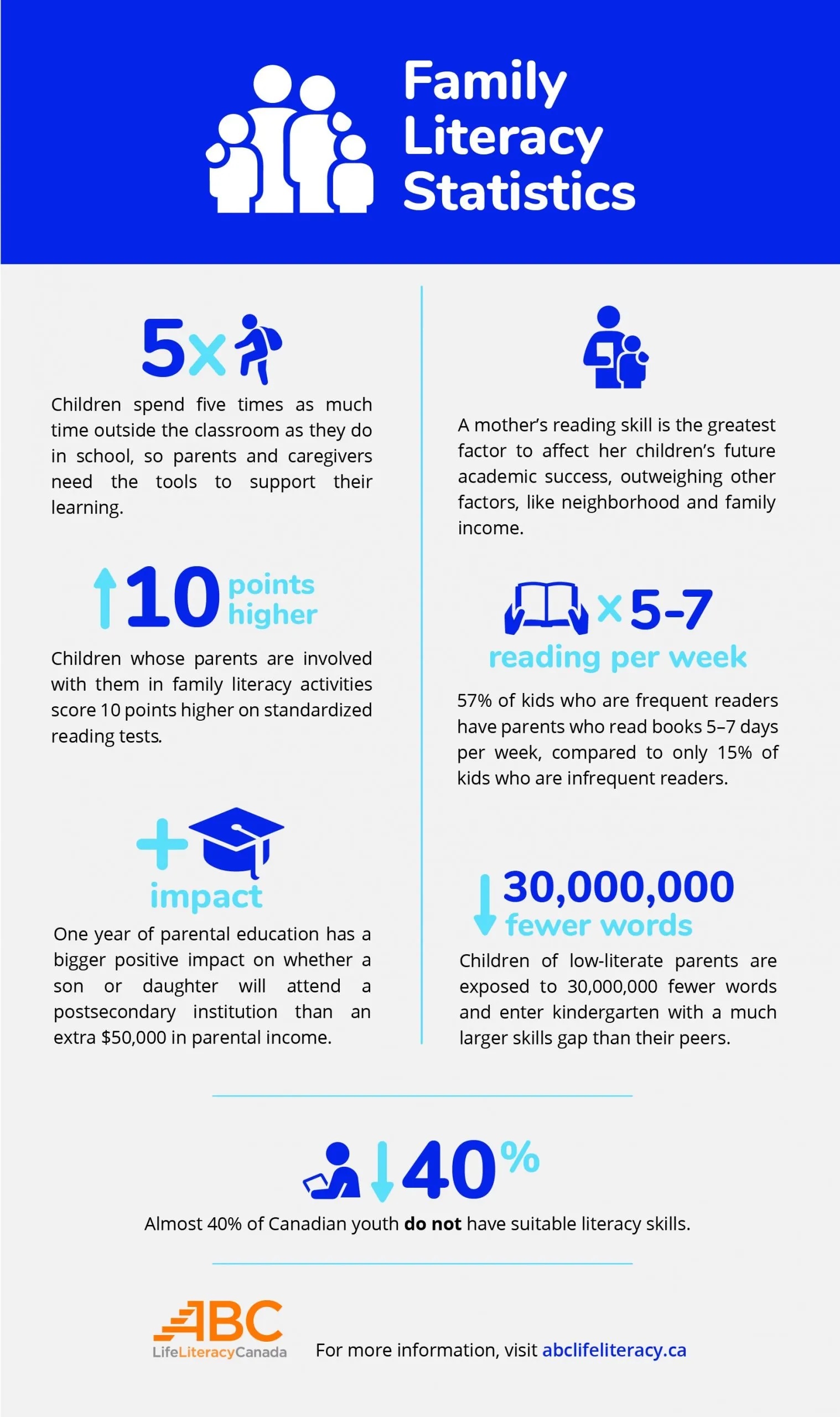
Family Literacy Day: Learning in the Great Outdoors
Family Literacy Day takes place every January 27th to raise awareness about the importance of reading and engaging in other literacy-related activities as a family. Since 1999, thousands of schools, libraries, literacy organizations and other community groups have taken part in the initiative. ABC (ABC Life Literacy Canada) creates free learning and promotional resources for anyone that wants to get involved. Taking time every day to read or do a learning activity with children is crucial to a child’s development, improving a child’s literacy skills dramatically, and can help a parent improve their skills as well.
What is Family Literacy?
Family literacy focusses on parents, grandparents and other family members to improve the reading and writing skills of the whole family.
By reading to children and engaging in fun literacy activities regularly, adults actively keep their own skills sharp and also help children improve their skills.
Family literacy activities strengthen the relationship between family members which, in turn, encourages lifelong learning.
Without adult support and a strong foundation at home, a child is less likely to be successful and engaged in school.
How to Celebrate Family Literacy day
Few things stimulate the mind as much as reading. Here are some ideas how you can celebrate family literacy day this month or all year long!
-
Create a reading nook - carving out a space, even a small one, for kids to read will encourage them. Make sure to stock it with interesting age appropriate books
-
Join a book club- this is a great way to make reading a habit. Join a club at school, online or start one yourself
-
Read a book or poem as a family - reading together not only helps kids learn it is also great family time
-
Read and Watch- Choose a book that has been turned into a movie. Read the book first and then schedule a family movie night
-
Book Show and Tell - Children can bring in a favorite book and give a short presentation to friends or family
-
Create bookmarks - Make your own bookmarks with your favourite book or why you like to read
-
Book Swap- Host a book swap with friends to learn about new titles and see what other people are reading.
- Go to the library! We have 1000's of books all FREE! Plus amazing staff that will help your find your next great read
What PEPL is doing
- Social media posts throughout the month
- Activities sheets -downloadable and in-person (see the bottom of this page)
- Take and make kits -available at the library
- 1000 books before Kindergarten kits -available at the library
- Reading lists on our Bibliocommons
- Children spend five times as much time outside the classroom as they do in school, so parents and caregivers need the tools to support their learning (The Read-Aloud Handbook, Jim Trelease, 2006).
- Children whose parents are involved with them in family literacy activities score 10 points higher on standardized reading tests (The Effect of Family Literacy Interventions On Children’s Acquisition of Reading: From Kindergarten to Grade 3, Conducted by Monique Sénéchal for the National Center for Family Literacy, 2006).
- One year of parental education has a bigger positive impact on whether a son or daughter will attend a postsecondary institution than an extra $50,000 in parental income (Higher Education Quality Council of Ontario, 2011).
- A mother’s reading skill is the greatest factor to affect her children’s future academic success, outweighing other factors, like neighborhood and family income (National Institute of Health, 2010).
- Parents’ reading habits play a large role in determining how often kids read: 57% of kids who are frequent readers have parents who read books 5–7 days per week, compared to only 15% of kids who are infrequent readers (Kids and Family Reading Report – Scholastic, 2017).
- Children of low-literate parents are exposed to 30,000,000 fewer words and enter kindergarten with a much larger skills gap than their peers (The Case for Investment in Adult Basic Education, Kevin Morgan, Dr. Peter Waite, Michele Diecuch, March 2017).
- Almost 40% of Canadian youth do not have suitable literacy skills (TD Canada Trust, Literacy Matters: A Call to Action).
